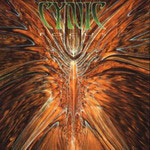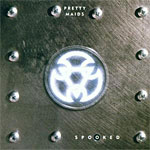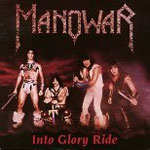|
|
Interview with Daniel Gildenlöw - Pain of Salvation
Asking the questions: Mads Erdland Aanum
Answering the questions: Daniel Gildenlow
Date: 2002-04-28
The new album "Remedy Lane" sounds very personal. How much is fiction and how much is your own life?
And do you always use your own life as source?
Let me begin at the end of your question and work myself to the beginning of it ;)
I think all people who create music or write books or paint use their own lives as a source of inspiration, I mean, our own lives, situations and experiences are our only point of departure through which we see the world, and against which everything we believe and feel is measured. Whenever we picture situations we haven't been through ourselves we are still using our own emotional knowledge base and patterns as a filter. That is why empathy is such an important lesson to teach our children (and neighbours, friends and parents if needed...).
"Remedy Lane" is definitely the most personal and intimate album we have done this far, in that it is actually based more openly on autobiographical experiences. First and foremost this level of intimacy comes from a kind of crisis I had last summer, but even before that I wanted to delve more into the human soul and nature, since I find it to be not only a nice counter balance to, but also a symbiotic side to our contemporary social and political situation. At the end of the day, our society merely reflects our souls; our little human values and our sad and pathetic fear of one another.
Furthermore, since the planned second part of "The Perfect Element", which was postponed due to the tour we did together with Dream Theater, was meant to be much more on a social and global level of story telling, I think that the closeness of "Remedy Lane" can be seen much more as being a balance to that, than to "The Perfect Element, part I".
The musical inspiration on all albums seem to be large. Do you listen to other bands for musical inspiration?
And how do you come up with the innovative and progressive elements in the songs?
And from where do you get your lyrical ideas.?
The wide area of inspiration comes mainly from not listening to progressive metal at all, I would think. There are great things in every kind of music genre I believe, if you look deep enough. I tend to be inspired by songs and fragments and elements much more than by artists. Therefore it is hard to mention some inspirations; I hardly know myself what I am inspired by.
Right now I am listening to some Finnish folk rock, Jeff Buckley and Apocalyptica, on the tour I listened to System of a Down and some mixed CDs with nostalgic songs from my childhood. Some of my best CDs would be "Jesus Christ Superstar" (soundtrack version) by Andrew Lloyd Webber and Tim Rice, "Eye in the Sky" by The Alan Parsons Project, "Abbey Road" by The Beatles, "Little Earthquakes" by Tori Amos, "Post Orgasmic Chill" by Skunk Anansie, "Album of the Year" by Faith no More, "Ten" by Pearl Jam, "Where the River Turns to Sea" by Dive, "California" by Mr Bungle... the list could go on for quite some time of course.
Lyrically, I am influenced more by songs than artists again, but Simon & Garfunkel would be a good spokesman for my ideal lyrics. Close, poetic and political. Important words with beauty and an emotional content that will tear your walls down in a split second and leave you naked but remarkably alive.
The concept for each album seem to be alike and yet they are very different. I mean they are all about getting in touch with one self. But in different ways from different situations.
Can you try to explain the concept for each album.?
Every concept is about journeys, change, loss and personal development. Every concept also has environmental and anti-war aspects, being most clear in "One Hour.".
Entropia.
This album is a very complex concept that is pretty hard to grasp. It is about a family in a war situation, about a father that fails to protect his family, about a child who needs a father not a soldier, about a society that kills and excludes and then takes its hand away from the remains in shock of what it has become.
It is about a world I have chosen to call Entropia, which is a combination of the two words "Entropy" and "Utopia". Entropy is an expression from thermodynamics, explaining the theory that the energy of the Universe will inevitably drain since energy is constantly changing from short wave into long wave when it is used.
Every act we do to create order in a certain situation will add to destruction and chaos on a larger level; when you vacuum clean your house to create order, you create disorder in the Universe by draining it of its energy, to make a ridiculously clear example. The man who found this out killed himself. Utopia is the vision of the perfect society. Entropia is suspiciously similar to our world.
One Hour by the Concrete Lake.
This concept is about a man in the war industry who cannot believe in the statements formed to conserve our actions anymore: "If you don't do it, somebody else will"; "Weapons don't kill, man do" and "I am not responsible". He starts a journey to visit places around the world in order to see in what way his lifestyle affects the rest of the world.
The concept touches topics like the war industry, environmental pollution, nuclear industry and weapons, global water consumption and the dispossession of the indigenous peoples due to the western world and mining of uranium and storing of nuclear waste.
It is a horrible window into the affects of the western lifestyle of our contemporary society, and it all ends at the shore of Lake Karachay, where the former Soviet Union stored nuclear waste since the 50s. In 1988 the radiation from this lake was so high you would die within two weeks from the non-stochastic injuries (thus excluding any form of cancer, being a stochastic injury).
The Perfect Element, part I.
This is the first part of two about two people fighting against the wounds inflicted upon them by their past. It is a painful love story and in a way a musical "bildungsroman" (literary term for a novel dealing with adolescence and growing up). What forms us into what we become; what makes us tick and what makes others stop ticking?
It is about dealing with who you are and reconcile to go on. It deals with topics such as child abuse, violence, mental disorder, mobbing. and love as a path to reconciliation. It is about a society that creates certain malfunctions in a few people and then labels them as being "dangers to society" and fights to exclude them.
Remedy Lane.
Love, sex, religion, life, death, past. This is very much about losing yourself and your belief in your way in life, about distrusting love. It deals with unfaithfulness, sex, suicide attempts and its affects on the surroundings. It is a very intimate album, once again about growing up and seeking to find remedy by finding yourself. About acting without restraints in a desperate search for a freedom that you cannot even define anymore. About fractal emotional patterns recurring though different stages in your life.
I think it is interesting that looking back at all albums from a perspective, I can see a clear movement, a journey if you like. On Entropia I look at the individual through a social perspective and from there on the perspective changes perpetually to "Remedy Lane" where I look at society through an individual perspective. It is a journey from looking at the small in the big to looking at the big in the small so to speak.
Will you go on tour with this album? Have you plans to go to Denmark for more then one gig in Copenhagen.
We have a show on Tex scheduled for the 12th of July, on our way down to Wacken, but apart from that there is nothing planned. However, people are asking us to go on another tour later on this year so who knows.
The next album. Will the next album be "the Perfect element part 2". Or are you planning something different like a live album or a best of with rare tracks.?
I am working on TPE II but it is still depending on other people involved and so on. And we have something up our sleeve as well, so you'll have to wait and see. ;)
Japanese Editions. I was wondering as a fan of Pain Of Salvation. Why do you release a bonus track on the Japanese edition?
Do you think it is fair to the European/American fans, that they have to pay a lot for one extra track?
The Japanese market have problems with imports - basically, it is cheaper to import CDs than by domestic ones, so the bonus tracks are a way of keeping some market within the country. I don't know how long this situation will prolong...
We are trying to add real tracks, the worst thing I know is buying a re-release of an album I love and they have put some worthless bonus track on it, which spoils the overall picture and feeling of the album. A good example would be the crap at the end of "Ten" by Pearl Jam. Get rid of it! But I can see the problems with it, as for myself I would never buy an album because of one extra song, but if you are a collector kind of guy I guess you have to. On the other hand, if you are a collector you are probably glad that there are different versions out there ;) Bonus tracks are bound to be available sooner or later, like on the Limited Edition of "The Perfect Element, part I" where all the previous Japanese bonus tracks are on CD 2.
I would like you to thank you all for the interview. I hope to see you live somewhere soon.
Regards, | |
Written by Mads - 6/11/2002 |
This article has been shown 10905 times. Go to the complete list.
RevelationZ Comments
| Comment by Pontus Grina (Anonymous) - Tuesday, May 6, 2003 | Actually one of the best interviews with Daniel that I've read! I've always wanted to hear his comments on Remedy Lane and on Entropia. Rock on!
|
| Comment by Mads (Anonymous) - Thursday, May 8, 2003 | @pontus Grina:
well thanks for the great words... I think that it was a pretty cool interview... I hope to get a chance to speak to him again...
Mads@revelationz.net
|
| Comment by TheFourthHorseman (Anonymous) - Sunday, May 25, 2003 | Really good interview. Sadly it seems that he'll do some other concept before TPE II cause the orchestra that he plans to use isn't free until next year...or so I was told somewhere. Most likely true since it was taken from an interview. Anyway I can't really put a word on this interview since I'm tired ;) It's just good.
|
| Comment by PoS-fan (Anonymous) - Wednesday, June 11, 2003 | I've seen it mentioned before, and it's interresting that Mike Patton might've been an influence (quite certainly!)
for Daniel, since he was involved in both Faith No More and Mr.bungle. Mike Patton is a extremly talented and special singer, and I've noticed a bit of his "sound" in Daniels singing sometimes. And it's also interresting how the bass on R´n´R, from "Introduce Yourself" is alot alike the guitar in the beginning of Rope Ends, and I wouldn't be suprised if he has listened to that.
Otherwise I'd just like to say that Daniel is a genius
|
| Comment by pierangelo.vincenzi@libero.it (Anonymous) - Sunday, July 13, 2003 | A good interview: I can't wait for the new album.
Pier Angelo
|
| Comment by Kvazimoda (Anonymous) - Wednesday, August 17, 2005 | VzdroChKaMy my my love message My my my love
|
| Comment by Macondo (Anonymous) - Thursday, July 20, 2006 | 3
|
|
|
|
|
Daily Spotlight
Cynic - Focus
 Cynic started out as a death metal band in 1987 and over the next several years sent out five demos until th.... Cynic started out as a death metal band in 1987 and over the next several years sent out five demos until th....
Read full review
Retro Reviews
(Tommy)
Pretty Maids - Spooked
 It is pretty "Maids" amazing, when I think about all the great melodic songs this band has produced over time. All their records have some genius songs that just stick in my head forever. Well, on to .... It is pretty "Maids" amazing, when I think about all the great melodic songs this band has produced over time. All their records have some genius songs that just stick in my head forever. Well, on to ....
Read full review
(Steen)
Manowar - Into glory ride
 It's very hard for me to say that one Manowar album is my favourite because they all have a special meaning to me, each in it's own way. But when I'm in the mood for epic music Into glory ride.... It's very hard for me to say that one Manowar album is my favourite because they all have a special meaning to me, each in it's own way. But when I'm in the mood for epic music Into glory ride....
Read full review
Archive
· Albums of the month
· Retro Reviews
|
|
|